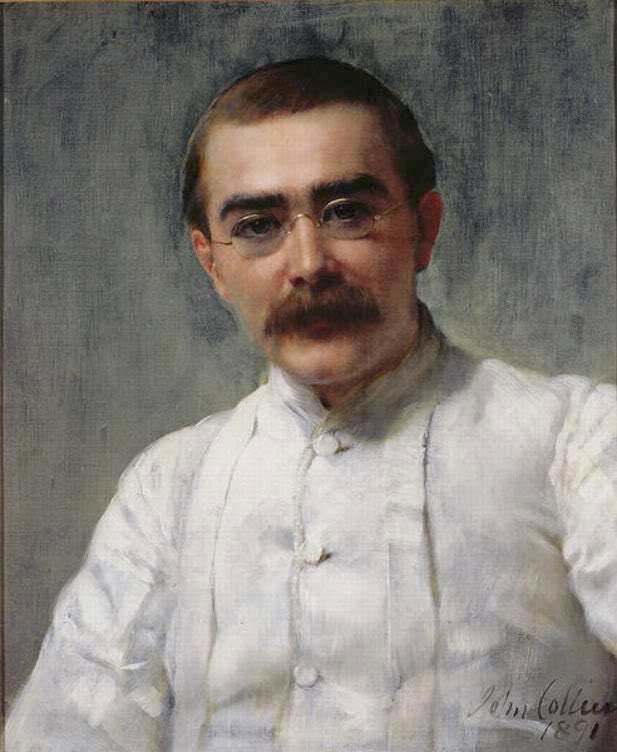So, I’ve been reading and listening quite a bit lately. A while ago, a friend of mine sent me a copy of “The Great Game” by Peter Hopkirk. Very engaging, and certainly on point given the recent US withdrawal from Afghanistan.
The book is named after a core idea in Kipling’s “Kim” — a book about a young anglo-Indian boy who becomes a spy. So, midway through “The Great Game” I decided to pause while I took up “Kim”. For anyone interested in spycraft, Kim is a fun read/listen (and it is a book where voice talent makes a big difference!).

Kipling – 1891
I was most impressed with Kipling’s effort (ability) to represent the perspectives and manners of cultures, ages, and gender. I love that aspect of “intelligence” — though I don’t always love how it is applied by intelligence services.
I also appreciate the deeper messages of the unity of mankind and duty to God that generally pervade Kipling’s work.
And, I found a couple of teaching-related treasures in “Kim”:
The first is a scene where Mahabub Ali, a horse-trader and spy, criticizes the madrasa — the school — where Kim is receiving his formal education. He says “Son, I am weary of that madrasa, where they take the best years of a man to teach him what he can only learn on the road. The folly of the sahibs has neither top nor bottom. And God, he knows, we need men more and more in the game”.
I couldn’t help but feel a little bit the same way about my own formal education. I wish it had a stronger applied focus. My favorite experiences occurred where I was applying my learning to my concurrent employment. And we do need men and women more and more in protecting our critical infrastructure systems. We need to prepare them efficiently and effectively.
The second is a scene where Kim and another young man are learning to expand their powers of observation. They are shown a tray of curiosities for a few seconds, and then told to describe the items on the tray, which they can no longer see. At first, Kim’s performance lags far behind a younger boy, but he learns to increase his power of observation.
I couldn’t help but agree wholeheartedly with the importance of quickly committing key information to memory, careful attention to detail, and the value of relevant practice. These can be reinforced by making the exercise a friendly contest — gamification.